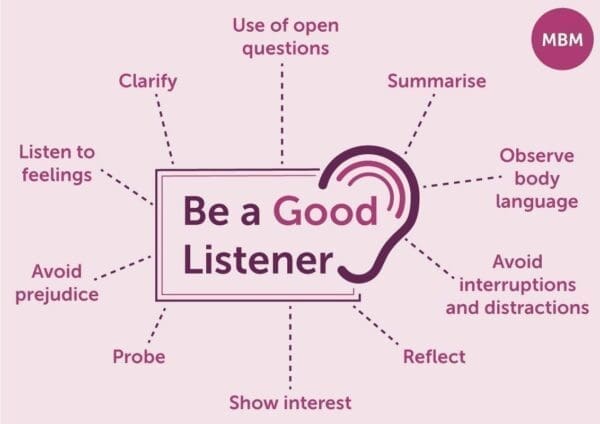How to Navigate Cross-Cultural Communication
As a people manager, you inevitably face a lot of challenges. Working in a team comes with benefits. If the team cohesion is high and the communication is smooth, team members can collaborate efficiently, achieve a high level of productivity, and accomplish their goals.
Things get more challenging when team members are of different nationalities and cultures. Every country has its traditions and culture. And, even though they are constantly changing, they are specific to that country. All of these have an impact on communication. There are tacit assumptions, for instance, how body language is interpreted. Moreover, cultural values will have an important influence on face-to-face communication.
To be successful in a world that is rapidly changing, you need to communicate effectively. But when there are people with different backgrounds and cultural norms, making yourself understood can turn out to be a real challenge. Cross-cultural communication is important because it helps you prevent conflicts and misunderstandings. In this article, you will discover the 8 most effective tips for effective cross-cultural communication.

Cross-Cultural Communication Tip #1: Do Your Research
If you know ahead that you will meet and work with people that have a different background and culture as you do, the first step would be to do your research. Experts in communication who offer essay writing help say that every culture has its own etiquette.
There is also a difference in the degree of formality and informality the first meeting has. So, it is important to know a few things about the communication of other cultures prior to meeting people of that country.
2. Be Open to Learn
Effective cross-cultural communication might not go well for the first time. But this depends on your willingness and openness to learning. When interacting with people from different cultures, you might not get every assumption or body-language sign. But asking for more details or clarifications can be helpful.

This also shows the others that you are interested in getting to know about their country. That you want to discover their cultural norms and the way they communicate. This information will also help you to adapt to another communication style.
Cross-Cultural Communication Tip #3: Keep Communication Simple
No matter how proficient you are in English, using complex syntagms and words can make communication even harder. Cross-cultural communication can be made effective if you do not use big words. Instead, simple and concise ways of sending your ideas and feelings are easier to understand.
Keep in mind that cultures are different. So people from different ones might have a hard time understanding an idea that is spoken in ambiguous and complex language.
Sticky Learning ® is 7 times more effective than 1-day training courses. Plus, you will get a Chain of Evidence proving your Return on Investment. Discover soft skills training that changes behaviours long term.

4. Listen Actively
When communicating cross-cultural, it is essential to pay attention to the cues other people are sending. Not all people are proficient in English, even though it is a language spoken internationally. Listening actively is a skill you need to develop, especially in the cases when face-to-face interaction is not possible.

Nowadays, more people are working remotely than ever before, so communication is mostly online. Paying attention to what other people say will improve cross-cultural communication and make it effective.
Cross-Cultural Communication Tip #5: Humour
Humour is quite variable depending on the people and their culture. Be aware that jokes that are funny in one culture could cause offence in another. Humour can make a conversation more relaxed and the atmosphere friendlier. But paying attention to how you incorporate it into cross-cultural communication is important.
6. Be Aware of Cultural Stereotypes
Culture and traditions might teach you that some other cultures are bad. This conflict usually arises when one culture does not approve of the other. So stereotypes about people that come from that culture are formed. It is important to avoid stereotypes, they are often inaccurate and offer a false view of a culture.
Being aware of these cultural stereotypes is important and can make cross-communication more effective. Because leaving them behind makes you more open to what others are saying.
Cross-Cultural Communication Tip #7: Avoid Slang Words
If you spend a lot of time in a culture you will inevitably become familiar with slang phrases. However, this is not always possible when working with people from different backgrounds. Using slang words in cross-cultural communication can make it more complex and difficult to understand.

Even though almost all slang words are known independently to English speakers, their meaning usually changes in slang English. Ideas and opinions can cause misunderstanding and confusion. This is something you should aim to avoid to ensure that cross-cultural communication is effective.
8. Be Supportive
As experts from do my assignment have learned from the essay writing service reviews they have received, people who are not native English speakers often feel anxious when communicating. They are well aware of the fact that they are not proficient and this makes them nervous. Some might not trust their communication skills, so this is why it is important to be supportive.
For cross-cultural communication to be effective it needs to have a base of trust. You can easily earn the trust of people from other cultures if you are supportive, listen to what they want to say, give them the time to express their ideas, and encourage them when they respond. Cross-cultural communication will thus be smoother.
Conclusion
Nowadays, more and more teams are working remotely with team members that come from many different cultures. These factors can make cross-cultural communication more difficult to happen. It is thus important to listen attentively and use simple language.
Avoid slang words and idioms and be aware of cultural stereotypes. Be open to learn more about other cultures and do your research first. Use humour cautiously and support others.




